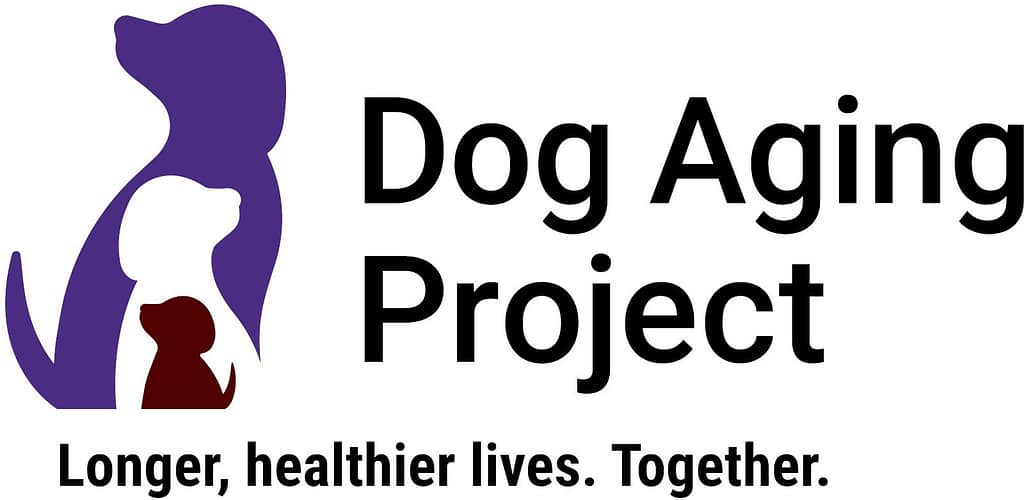
Projects We Support
The Dog Aging Institute envisions a world in which innovative research discoveries help dogs and humans share healthier, longer lives. The Institute is building a network of visionary partners to accelerate research on canine and human healthy aging. If you are interested in learning more about funding opportunities, contact info@dogaginginstitute.org.

The Dog Aging Project is a nationwide longitudinal study of companion dogs. The Project’s goals are to identify the biological and environmental factors, and their underlying mechanisms, that shape aging. Dogs experience diverse aging-related diseases like people do, dogs have a sophisticated healthcare system, and dogs share the environment of their human owners. Discoveries about healthy aging in dogs will help dogs live healthier, longer lives. Moreover, this new knowledge could translate into medical advances for people too. The Dog Aging Project started recruiting dogs in 2019. Since then, more than 48,000 dogs have enrolled in their long-term observational study.
In 2021, the Dog Aging Project launched a placebo-controlled clinical trial evaluating the ability of rapamycin to increase lifespan and health span in dogs. This is the first real-world study to test the ability of any drug to increase lifespan.
The team has published more than 50 papers, and as an Open Geroscience study, released more than 50 million data points to the global scientific community, with the goal of sharing much more as they collect additional data. The Project is young, but among their many findings, they have already published papers showing that exercise is linked to better cognitive function and that dogs that live with other dogs tend to be healthier. They are now analyzing a rich body of molecular data, which will help us identify the mechanisms behind these relationships, and allow us to develop predictive biomarkers of aging. The Dog Aging Project has captured the public’s attention, as demonstrated by stories in the Washington Post, the Wall Street Journal, CBS This Morning, NPR, the New York Times, and many more.

The Test of Rapamycin In Aging Dogs (TRIAD) is a double-blind, placebo-controlled clinical trial being conducted by the Dog Aging Project. This is the third and largest trial of rapamycin that has been conducted by this team. The goal is to assess the effects of the medication rapamycin on health and aging in dogs, and test if treatment leads to any of the following benefits:
- Better heart health
- Improved mobility
- Prolonged cognitive function
- Increased lifespan